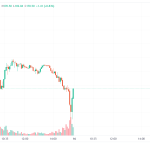Instead, success in futures trading relies on being adaptable, managing profits and losses wisely, and maintaining strong emotional control
Managing the Risks of Futures Trading
1. Futures as a Trading Vehicle
Concept: Futures are primarily used for short-term trading, focusing on price movements rather than long-term investments. This distinguishes futures from assets like stocks, which are often held for extended periods.
Explanation: Futures contracts are agreements to buy or sell an asset at a future date for a specified price. These contracts have expiration dates, and their value can fluctuate significantly in the short term. Consequently, futures trading requires active engagement and short-term strategies rather than a buy-and-hold mentality. If you treat futures as long-term investments, you might face substantial risks because of their inherent volatility and time sensitivity.
2. Avoiding Emotional Attachment
Concept: Do not become emotionally attached to your market view or positions. Instead, focus on price movements and adaptability.
Explanation: Getting "married" to a market direction means holding onto a position because you believe strongly in a particular outcome, even in the face of contrary evidence. This can lead to significant losses if the market moves against you. Successful futures trading involves being flexible and responsive to changing market conditions rather than rigidly sticking to a preconceived notion of where the market should go.
3. Active Management and Flexibility
Concept: Futures trading requires constant management and the ability to adapt quickly to market changes.
Explanation: Effective futures trading isn't just about executing trades; it involves actively monitoring your positions, understanding market dynamics, and making adjustments as necessary. This requires a well-thought-out game plan, but also the flexibility to modify that plan based on real-time information. Traders need to be quick and decisive, adapting their strategies as market conditions evolve.
4. Avoiding the "Buy-and-Hold" Mentality
Concept: Do not use futures trading as a long-term investment strategy. It’s about making money on short-term price movements.
Explanation: Futures are not suited for a buy-and-hold strategy due to their speculative nature and the impact of time decay on contract value. A buy-and-hold approach can lead to significant financial losses as futures contracts can expire worthless or lead to substantial costs if the market moves unfavorably. The goal should be to capture short-term price movements rather than holding positions with the hope that they will eventually turn profitable.
5. Managing Profits and Losses
Concept: Balance your approach to taking profits and managing losses. Avoid letting losses grow while taking small profits.
Explanation: The expression "Eating like a bird and crapping like an elephant" refers to a trading habit where one takes small, frequent profits but allows large losses to accumulate. This is a detrimental practice because it can erode your trading capital over time. Instead, effective trading involves cutting losses quickly to prevent them from growing and allowing profits to develop. Establish clear rules for when to take profits and when to cut losses to maintain a balanced and disciplined approach.
6. Developing Discipline and Emotional Control
Concept: Trading requires strong mental discipline and emotional control.
Explanation: Trading can be emotionally challenging, with the potential for fear, greed, and frustration to impact decision-making. Developing discipline helps you stick to your trading plan and strategy without being swayed by emotions. Emotional control allows you to make rational decisions, manage risk effectively, and maintain a long-term perspective, even in the face of short-term setbacks.
7. Acknowledging Risks and Reality
Concept: Understand and accept the risks involved in trading futures.
Explanation: The disclaimer about the dangers of trading futures reflects the high-risk nature of this activity. Futures trading involves leverage, which can magnify both gains and losses. Acknowledging these risks is crucial for approaching trading with the right mindset. It encourages traders to be cautious, stay informed, and continually educate themselves to manage risks effectively and make informed decisions.
Summary
The passage emphasizes that futures trading is an active, short-term endeavor that requires careful management and emotional discipline. It’s not about holding onto positions for the long term or trying to prove a point about market direction. Instead, success in futures trading relies on being adaptable, managing profits and losses wisely, and maintaining strong emotional control. Understanding and respecting the inherent risks of futures trading is crucial for achieving long-term success.
Leave a comment
Your email address will not be published. Required fields are marked *



